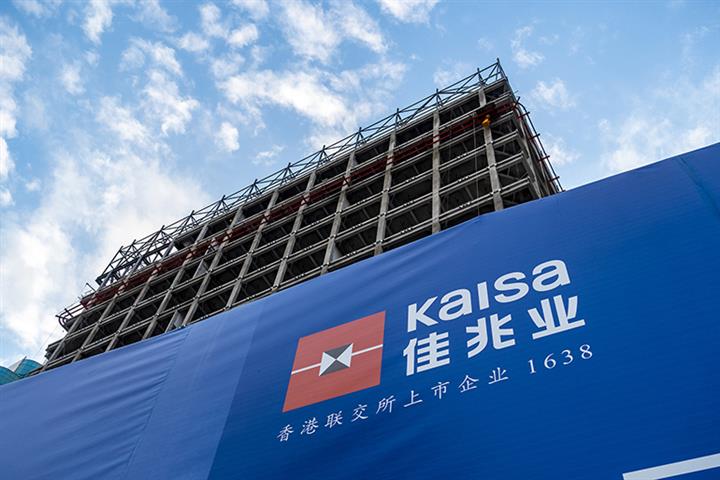 Chinese Developer Kaisa Sinks to Record Low After Failing to Roll Over USD400 Million Debt
Chinese Developer Kaisa Sinks to Record Low After Failing to Roll Over USD400 Million Debt(Yicai Global) Dec. 3 -- Shares of Kaisa Group Holdings slumped to an all-time low after the Chinese property developer said in a filing this morning that it had failed to roll over USD400 million of bonds due next week.
The shares [HKG: 1638] closed 8.8 percent down at 93 Hong Kong cents (12 US cents) each, after earlier plunging by as much as 9.8 percent. Kaisa’s market cap has shrunk almost 74 percent this year to HKD6.5 billion (USD834.3 million).
The developer, based in Shenzhen and Hong Kong, said on Nov. 25 that it issued the senior notes, which carry a 6.5 percent coupon, on Dec. 8 and Dec. 23 last year. They are scheduled to mature on Dec. 7 and on June 8 next year.
Kaisa was hoping to postpone the due dates to 2023 after hitting a cash crunch. But it failed to get the agreement of 95 percent of the bondholders. The firm may not be able to pay back the bond and may consider debt restructuring if the attempt to roll over fails, it noted.
Kaisa also failed to pay interest on two US dollar notes due in 2023 and 2025, with payment in a 30-day grace period, it said on Nov. 25. Payments are due on Dec. 11 and 12.
Kaisa has faced a liquidity crisis since the funding environment for China’s property developers became increasingly tight. Fitch Ratings cuts its credit rating to junk last month, citing increasing risk that the builder may default on dollar bonds, while wealth management products issued by its affiliate have also became overdue.
Chinese regulators recently accepted the bond financing plans of two other developers, Country Garden and Longhu Enterprise Development, in a sign that private real estate developers are gaining access to China’s credit market, a channel state-owned builders tap.
The two companies each submitted a sales prospectus for a CNY5 billion (USD784.41 million) medium term note, according to the National Association of Financial Market Institutional Investors. Analysts said it was a positive signal that the nation’s bond market is open to private real estate developers.
Editor: Futura Costaglione